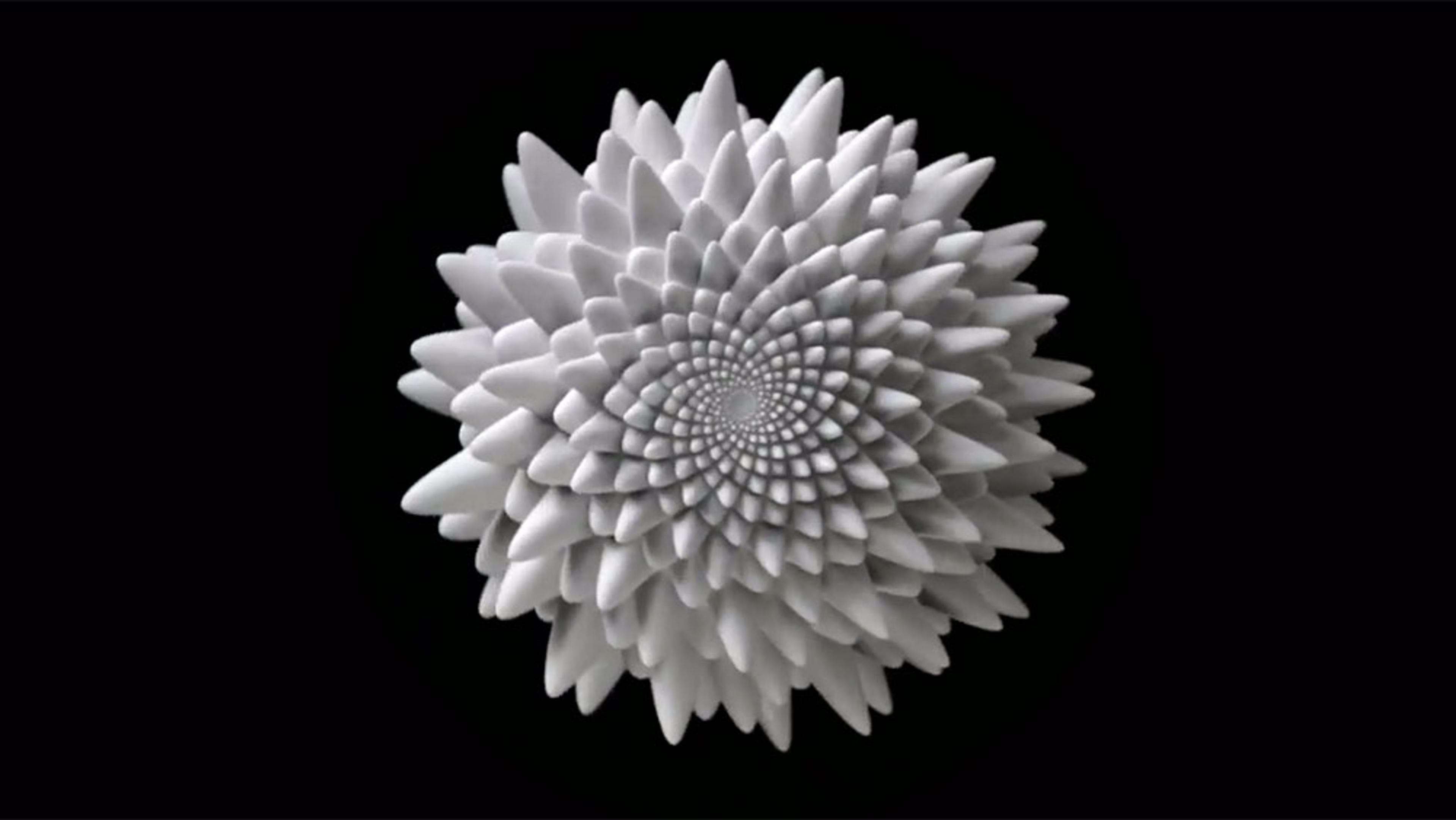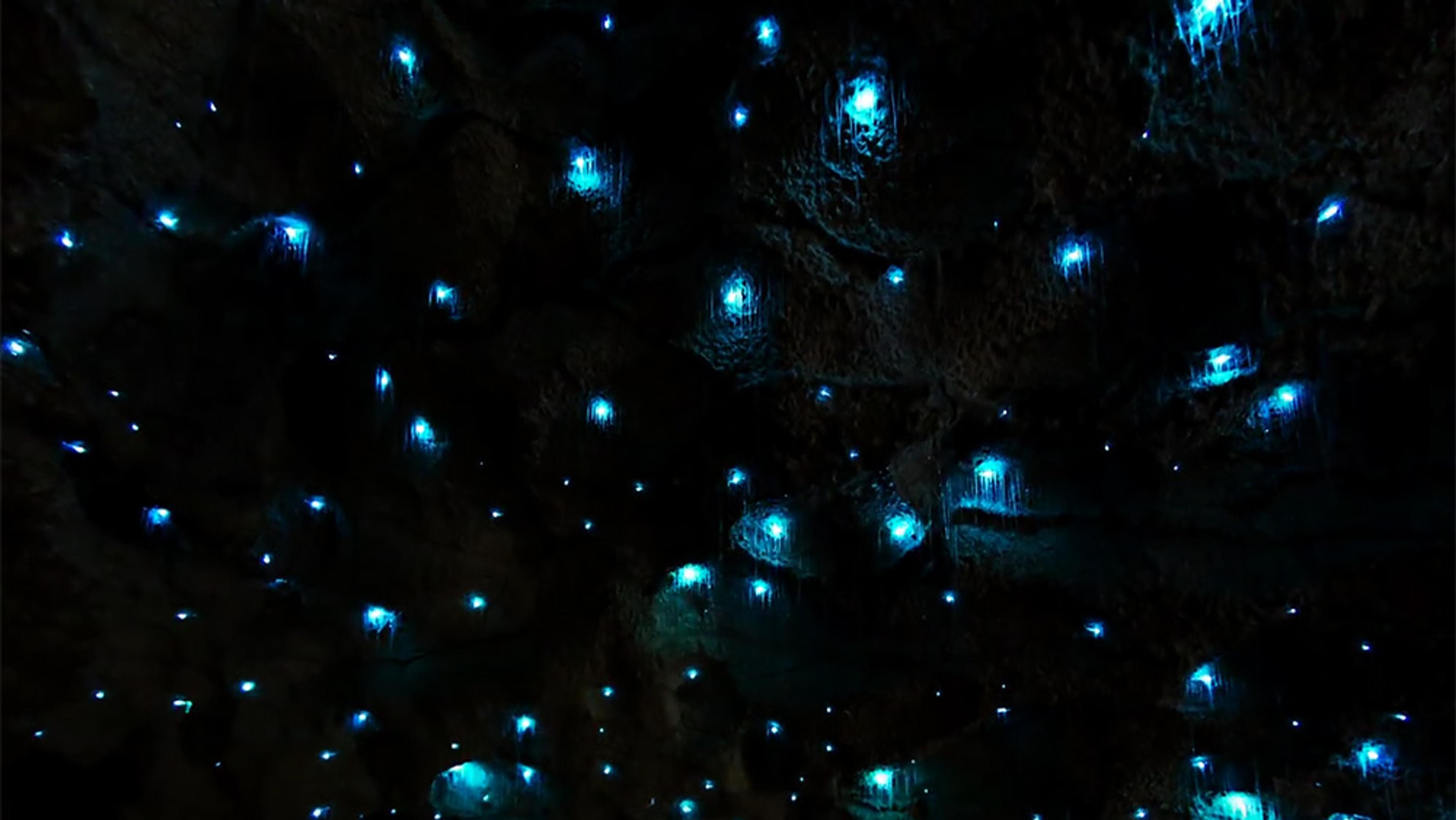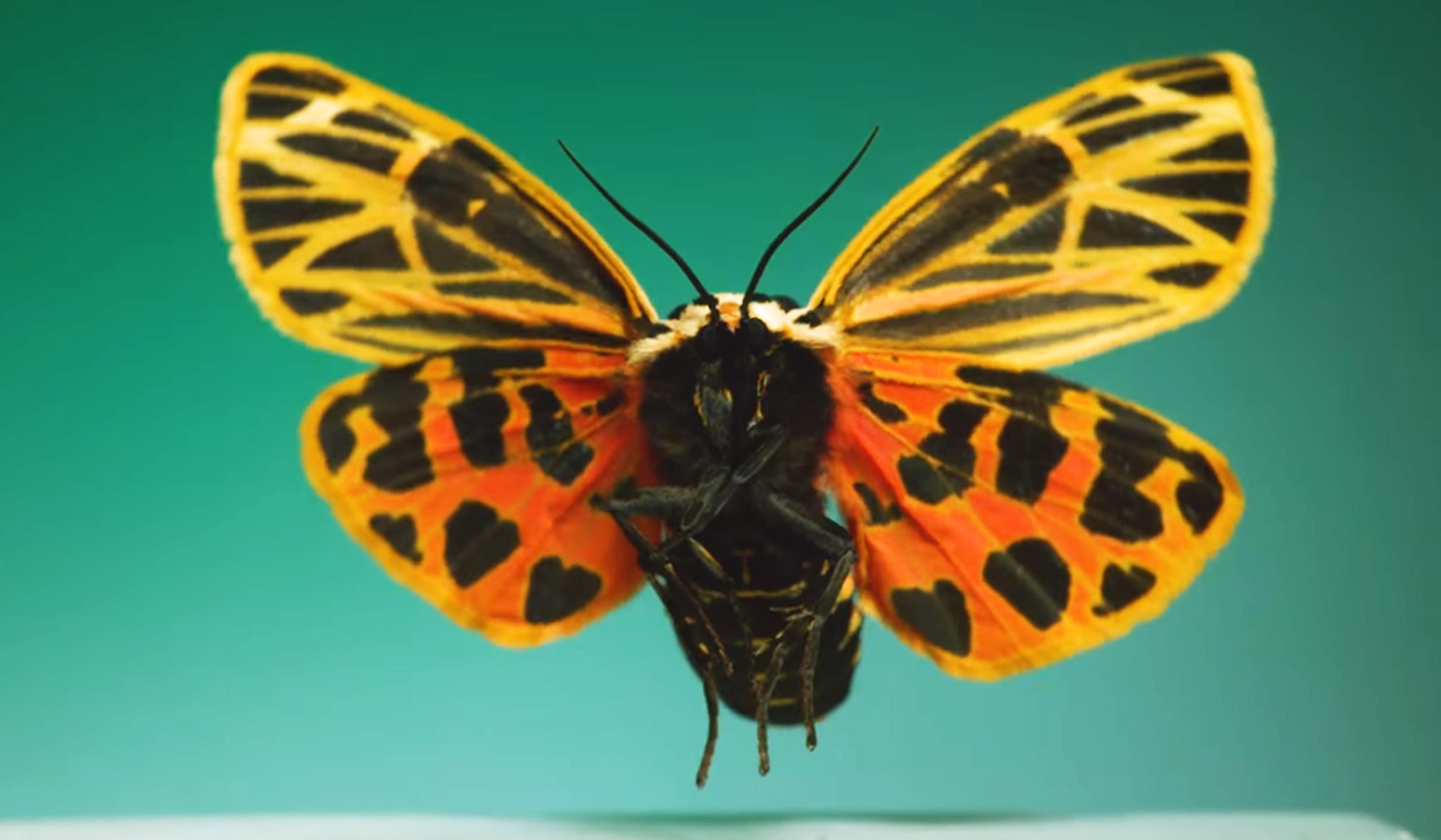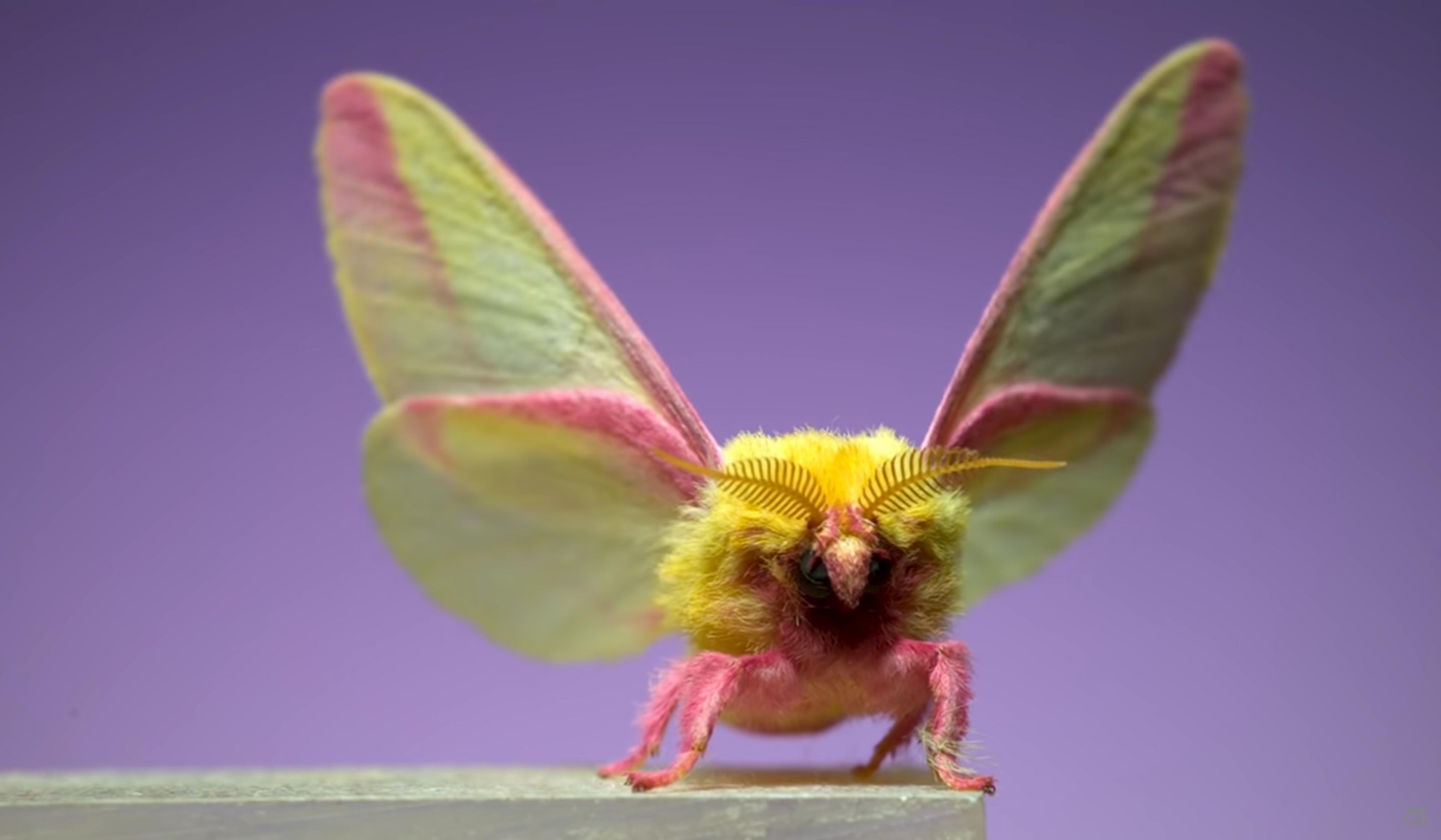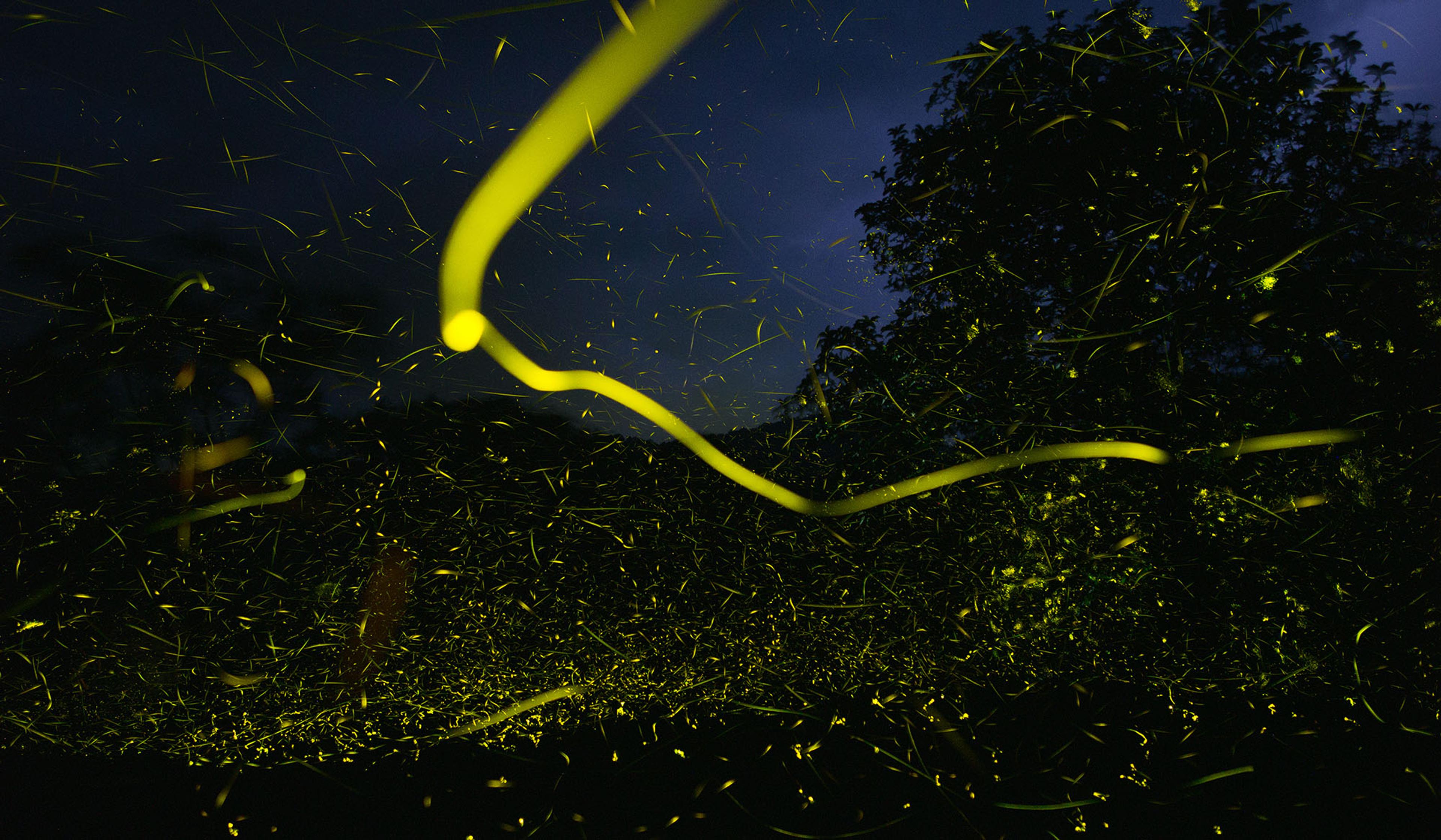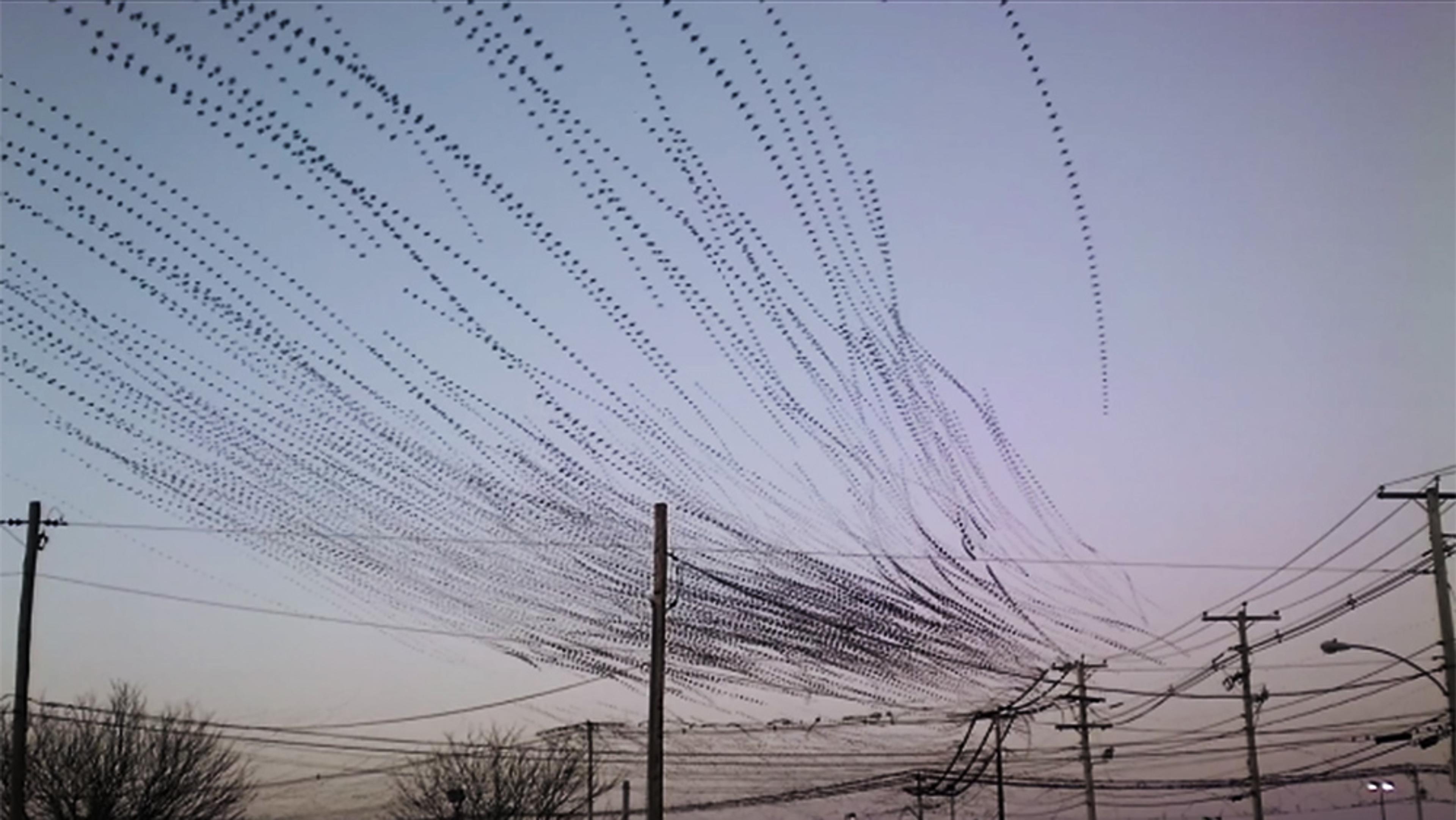Part of an art experiment conducted in Thailand’s mangrove forests by the Swiss artists Robin Meier and André Gwerder, this short film documents a stunning display of fireflies flashing in manipulated patterns. In 1992, researchers solved what was once a scientific mystery, figuring out that certain species of fireflies synchronised their flashing not by following a leader, as was suspected, but by coordinating their internal clocks to match the group. In Synchronising Fireflies, Meier and Gwerder manipulate this natural mechanism by using LEDs to coax the fireflies into creating coordinated displays. The piece is hardly just an exercise in crafting ecological eye candy, though; in creating it, the artists set out to ‘explore the idea of free will and transform a machine into a living actor inside a colony of insects’.
For those who want to be that living actor inside a colony of insects, the US-based games developer Nicky Case created ‘Fireflies’.

